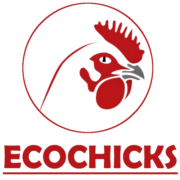1. Select your Poultry Niche
The poultry industry is a broad niche. There are many sub-sectors in the poultry industry which you can tap into. Below are niches in the poultry business:
- Egg production (Layers breeding)
- Meat production (Broilers breeding)
- Chicken breeding (Hatchery)
- Poultry feed production
- Poultry equipment manufacturing
- Egg and meat processing, packaging and marketing
2. What type of bird will you be focusing on?
Poultry farming can further be classified into the types of birds:
- Domestic fowl or Chicken (Broilers and layers)
- Turkey
- Guinea fowl
- Pigeon
- Duck
- Goose
But for this article, I will be focusing on poultry breeding for egg and meat purposes with respect to the domestic fowl.
3. Start-up Capital Investment
The poultry farming business is capital intensive; depending on the scale, location of your farm and the type of management technology used. A small scale poultry farm being run behind your house may require a capital of between $500 – $1,500. A medium scale poultry farm may require $2,000 – $5,000 and a large scale poultry farm may require a start-up capital of $10,000 and above. Like I stated earlier, scale is directly proportional to capital.
4. Poultry Location
A good location is vital to the success and profitability of your poultry farm. An ideal poultry farm should be sited where there’s a large availability of cheap land and at the same time; should be close to areas with high population density. It’s not advisable to site your poultry farm within a residential area because of the offensive odour it produces.
5. Housing your birds
There are three methods you can employ with respect to housing your birds. They are:
- Extensive system: Range and fold unit
- Semi Intensive system: Standard semi intensive unit and straw yard
- Intensive system: i. Deep litter, ii. Wire and slated floor, iii. Straw yard, iv. Battery cage.
If you are running a poultry farm for commercial purposes and you intend getting the best out of the business; with respect to high birds’ productivity and efficiency. Then you should consider housing your birds using the intensive system. Note that each of the three housing system has its own advantages and disadvantages. Lastly, your poultry housing structure should be built at a particular angle; taking sunlight and wind into consideration.
6. Poultry equipment and appliances
The following equipment may be needed for your poultry farm:
- Feeders
- Drinkers
- Perches
- Nests
- Crates
- Lighting system
- Waste disposal system
- Incubator
7. Projected return on investment
The incubation period of the domestic fowl is 21 days. You can start selling off your birds as early as 8 – 12 weeks but full maturity is reached between 20 – 24 weeks. The payback period of a poultry farming business is between 3 – 5 years.
8. Poultry Farm staffing and manpower
Operating a poultry farm is not labor intensive if the use of technology is employed. With respect to staffing, the number of manpower needed is also dependent on the size of your farm. But some must haves should be admin officer or manager; who will oversee the day to day running of your business. Your manager can also double as your accountant to cut down cost. It is advisable you have personnel who will reside permanently in the farm to monitor and see to the well being of your birds. You will also need security personnel that will monitor the inflow and outflow of people around your farm; and most importantly, guard against theft. Aside these few mentioned, you can add more personnel to suit your business needs.
Challenges facing Poultry Farming Business
The following are the challenges of poultry farming:
- High start-up capital
- Longer pay back period
- Outbreak of diseases
- Labor intensive
- Pests and predators
